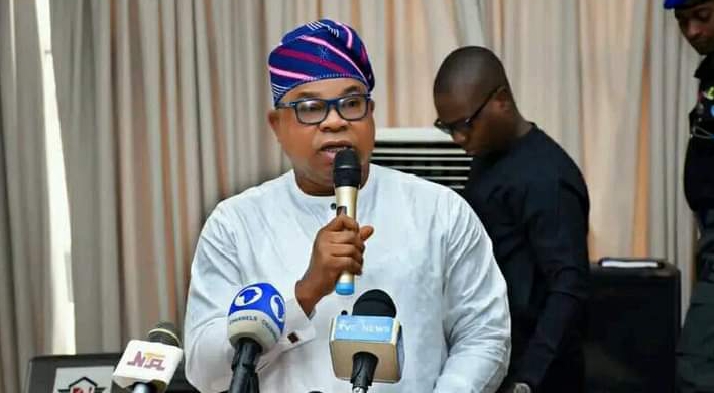Managing director of the National Inland Waterways Authority (NIWA), Bola Oyebamiji, has frowned at the poor revenue and debt recovery drive by some area managers.
Speaking at the authority’s 2025 Management Retreat, Oyebamiji bemoaned the underperformance of some area offices, citing cases where annual revenue figures were as low as one or two million naira. He, however, stressed the need for improved performance across all NIWA offices, particularly in revenue generation and debt recovery.
According to him, the management and staff of the brown water regulatory agency show renewed commitment to boosting revenue generation, enforcing accountability, and improving the operational efficiency of the organisation.
“This situation is simply unacceptable.
Despite management’s provision of resources, incentives, and training opportunities, the expected results were not achieved. Moving forward, stricter measures will be enforced to ensure accountability and drive performance,” Oyebamiji stated.
He further addressed the challenges in debt recovery, revealing that many area managers failed to cooperate with the debt recovery consultant appointed in 2024.
“In some instances, debtors were either untraceable or provided inconsistent financial records, making recovery efforts difficult. This negative attitude towards financial accountability will no longer be tolerated,” he warned.
The retreat, which brings together key stakeholders including the honourable minister of marine and blue economy, the chairman of the house committee on inland waterways, the NIWA board, management staff, and security personnel, aims at providing a comprehensive review of the authority’s 2024 performance and establish strategic targets for 2025.
With new government directives under President Bola Ahmed Tinubu, and the leadership of honourable minister Gboyega Oyetola, NIWA has been tasked with additional responsibilities, including, increased revenue remittances from the port development levy, in addition to the existing 50% revenue deduction at source, improved service delivery to meet the expectations of the general public and stakeholders in the maritime sector and enhanced collaboration with sister agencies under the Ministry of Marine and Blue Economy to improve efficiency.
Oyebamiji emphasised that, beyond reviewing past performance, the retreat would also focus on capacity building and teamwork to ensure that every officer is well-equipped to meet the set goals.
“This retreat is not just about evaluating past performance; it is about strategising for the future. I encourage all participants to engage actively, exchange ideas, and work collectively towards making NIWA a leading agency in the marine and blue economy sector,” he concluded.
The two-day retreat will feature panel discussions, training sessions, and interactive engagements aimed at strengthening NIWA’s operational framework and fostering a culture of efficiency, accountability, and innovation.





